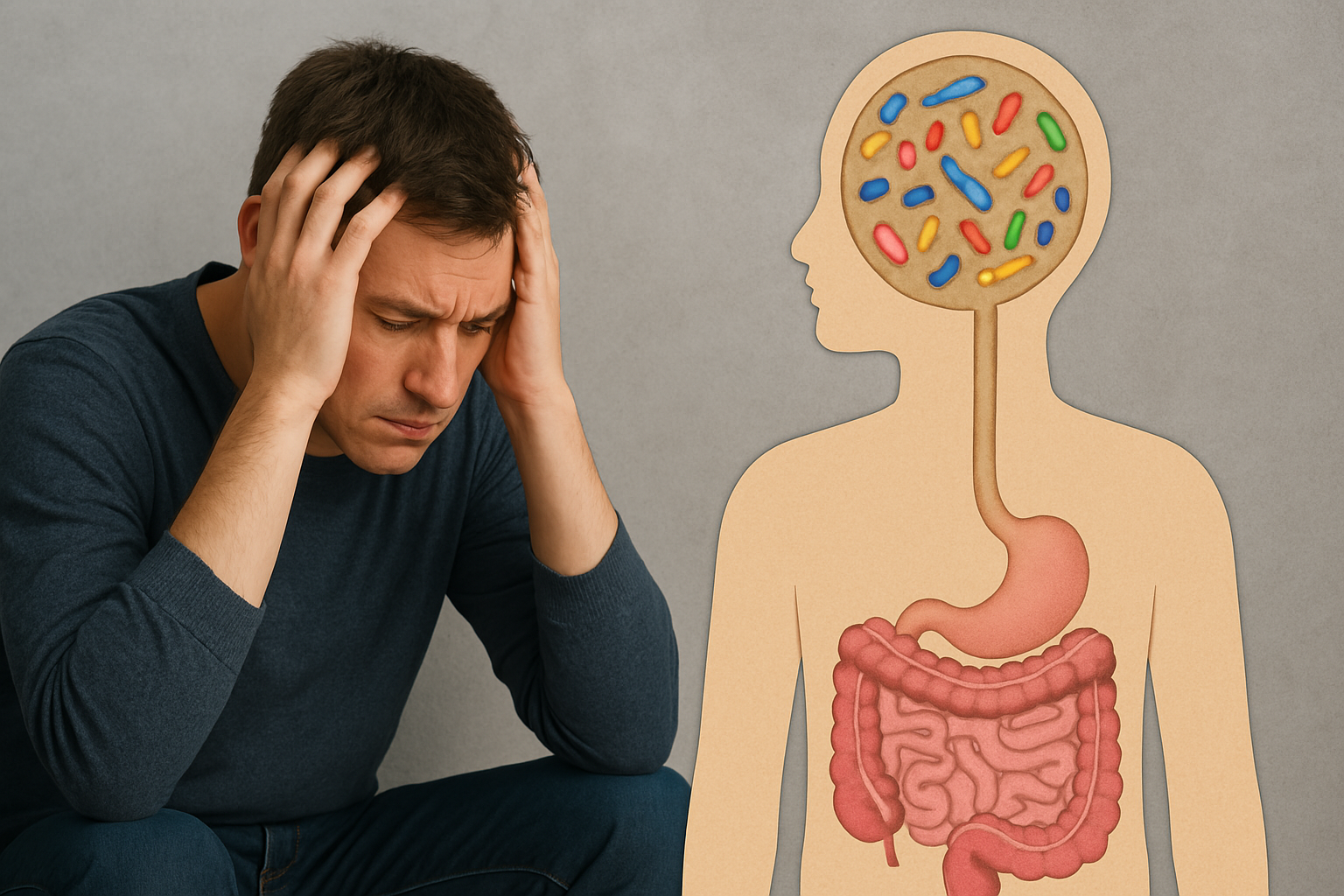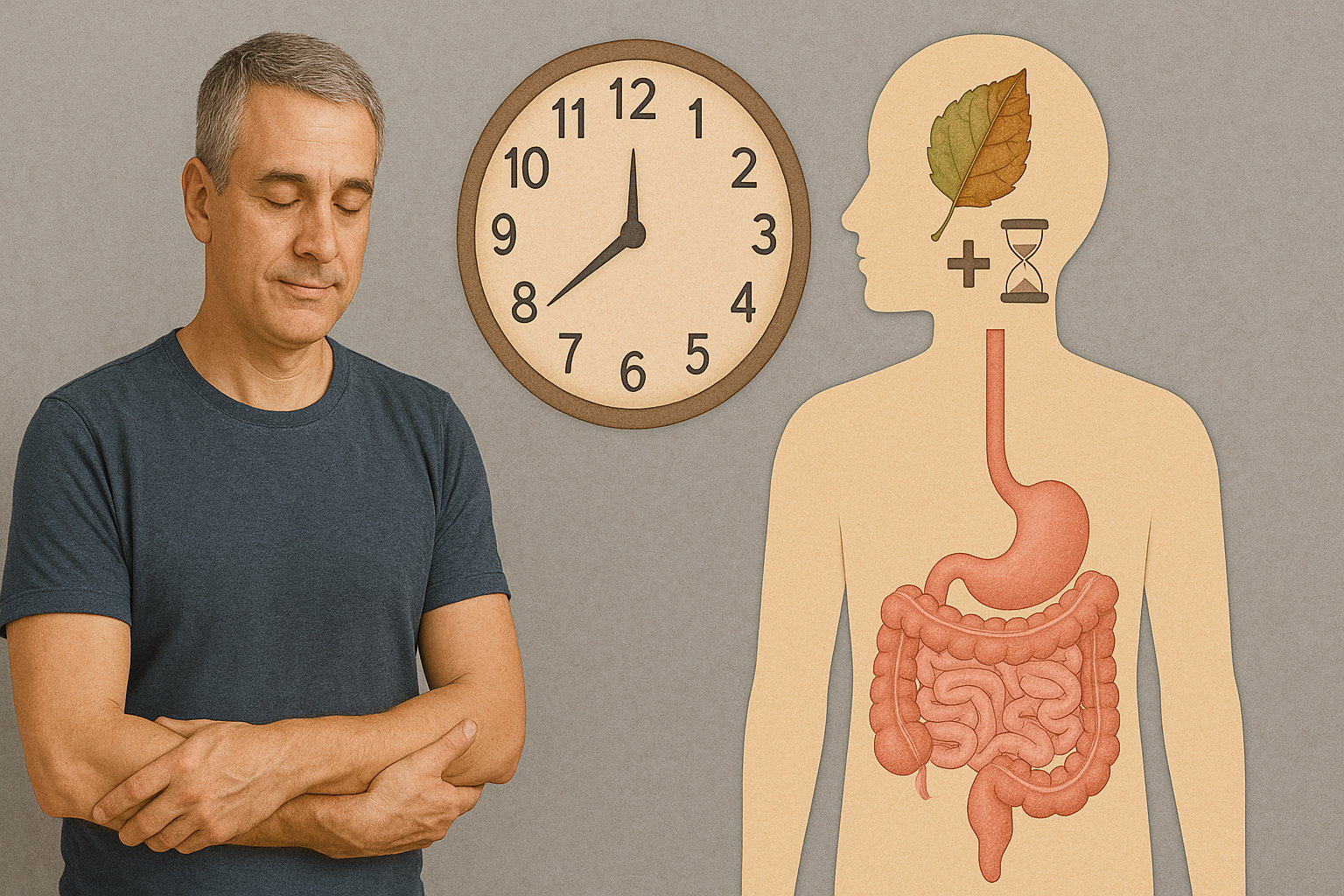Now Reading: Link Between Chronic Stress and Gut Microbiota Imbalance Uncovered
-
01
Link Between Chronic Stress and Gut Microbiota Imbalance Uncovered
Link Between Chronic Stress and Gut Microbiota Imbalance Uncovered

How Chronic Stress Disrupts Your Gut: The Surprising Connection You Need to Know
Ever felt “butterflies” in your stomach during a stressful moment? Or experienced tummy troubles after a tough day? Turns out, that feeling isn’t just in your head — there’s real science behind how chronic stress affects your gut health. Recent research sheds light on how ongoing stress can throw your gut bacteria off balance, a condition known as gut microbiota imbalance. This disruption can have a profound impact on your physical, mental, and emotional well-being.
Let’s explore how chronic stress messes with your gut, why it matters, and what you can do to stay balanced.
Understanding the Gut-Brain Connection
Before diving into the nitty-gritty, let’s talk about the gut-brain axis. Think of it as a two-way communication highway between your brain and your digestive system. This link is so strong that your gut is nicknamed the “second brain.” Why? Because about 90% of your body’s serotonin — the feel-good chemical — is made in the gut.
So when the brain is stressed, your digestive tract feels it. And vice versa. This back-and-forth plays a huge role in both mental health and gut health.
What Are Gut Microbiota?
Your gut is home to trillions of microorganisms. These include bacteria, fungi, and viruses — collectively referred to as your gut microbiota or gut flora. Don’t worry — most of these tiny residents are good for you. They help digest food, produce vitamins, fight infections, and even regulate mood.
But stress can disturb this delicate balance — causing a shift in the types and amounts of bacteria living in your gut. This imbalance is known as dysbiosis and it can lead to a number of health issues.
What the Research Says: Stress and Gut Health
In a groundbreaking study titled “Chronic Psychosocial Stress Induces Systemic Inflammation and Microbiota Dysbiosis That Contribute to Behavioral Alterations in Mice” (Zhou & Foster, 2017), scientists discovered that ongoing psychological stress caused measurable changes in gut bacteria and behavior in mice.
Here’s a summary of what they found:
| Area of Study | Findings |
|---|---|
| Gut Microbiota | Stress altered the balance of gut bacteria, reducing healthy strains and increasing harmful ones. |
| Immune System | Stress triggered increased inflammation throughout the body. |
| Brain & Behavior | Mice under chronic stress showed signs of anxiety and depression-like behavior. |
Even though the study was done on mice, the implications for humans are significant. Many scientists now believe the same stress-microbiota-brain chain likely exists in people too.
How Chronic Stress Harms Your Gut
Let’s break down how chronic stress affects your gut health:
- Increased gut permeability – Stress can weaken the lining in your intestines, making it easier for harmful substances to enter your bloodstream. This is often called “leaky gut.”
- Imbalanced gut flora – Long-term stress reduces helpful bacteria while increasing harmful ones. This can lead to gas, bloating, upset stomach, and more.
- Lower immune response – A stressed gut can’t support your immune system as effectively, leading to higher risks of illness.
- Mood changes – The disruption in gut bacteria affects your brain chemistry, increasing the risk of anxiety and depression.
Real-Life Scenario: Meet Sarah
Let’s put this into context. Sarah, a 35-year-old teacher, suffered from regular stomach aches and fatigue. She chalked it up to a poor diet and a busy schedule. But after seeing a specialist, she realized stress from work was affecting her gut bacteria — causing inflammation, digestive problems, and even mood swings.
After introducing mindfulness techniques, gut-friendly foods, and regular sleep, Sarah saw a dramatic improvement in her symptoms. Her story isn’t unique — and it’s a powerful example of how managing stress can heal more than just your mind.
Signs Your Gut Might Be Out of Balance
Wondering if your gut is affected by stress? These are some red flags to watch for:
- Frequent gas, bloating, or diarrhea
- Persistent tiredness
- Brain fog or trouble concentrating
- Food intolerances
- Anxiety or depressive symptoms
- Cravings for sugar or junk food
If these sound familiar, your gut might be trying to tell you something.
Protecting Your Gut from Stress
The good news? You can support your gut health with a few simple (and natural) steps. Here’s how to begin:
1. Eat for a Healthy Gut
- Probiotics: Add fermented foods like yogurt, kefir, kimchi, and sauerkraut to your diet.
- Prebiotics: Feed your good bacteria with fiber-rich foods like beans, garlic, onions, bananas, and oats.
- Cut back on sugar: Too much sugar fuels harmful bacteria in your gut.
2. Manage Your Stress
Your gut and brain need peace. Try these proven stress-reducing habits:
- Daily exercise (even a short walk helps!)
- Meditation or deep-breathing exercises
- Journaling or talking with a friend
- Limiting screen time before bed
3. Get Regular Sleep
A tired body can’t regulate hormones or repair your gut lining effectively. Aim for 7–9 hours of quality sleep each night.
4. Stay Hydrated
Water supports digestion and helps maintain a healthy balance of gut bacteria. Try to drink at least 8 cups a day.
5. Avoid Unnecessary Antibiotics
While they’re sometimes lifesaving, antibiotics can wipe out both bad and good bacteria. Only use them when absolutely necessary and take probiotics afterward to restore balance.
Why This Matters More Than Ever
Today’s fast-paced world means more of us are living with chronic stress, even if we don’t realize it. Long days at work, financial worries, and endless to-dos can silently harm our gut health — which in turn affects everything from our energy levels to our mood.
Taking care of your gut means taking care of your whole self — physically, mentally, and emotionally.
Final Thoughts
Science is clear: your gut and brain are in constant conversation. When stress hits — especially the chronic, every-day kind — that conversation can turn toxic. By learning how to manage stress and feed your gut the right nutrients, you’re not just helping your digestion — you’re boosting your immunity, balancing your hormones, and improving your mental clarity.
So the next time you feel stressed, remember — your stomach is listening. Maybe it’s time to give it a little TLC.
Sources
- Chronic Psychosocial Stress Induces Systemic Inflammation and Microbiota Dysbiosis That Contribute to Behavioral Alterations in Mice. Zhou & Foster, 2017.
- Harvard Health: The gut microbiome
- The Microbiome and Mental Health. NIH.
- Gut microbiota and the impact of chronic stress
- Psychobiotics as a natural remedy for chronic stress
Have you noticed any symptoms of stress messing with your gut? Share your experience in the comments and let’s start a conversation. Your story might help someone else!









